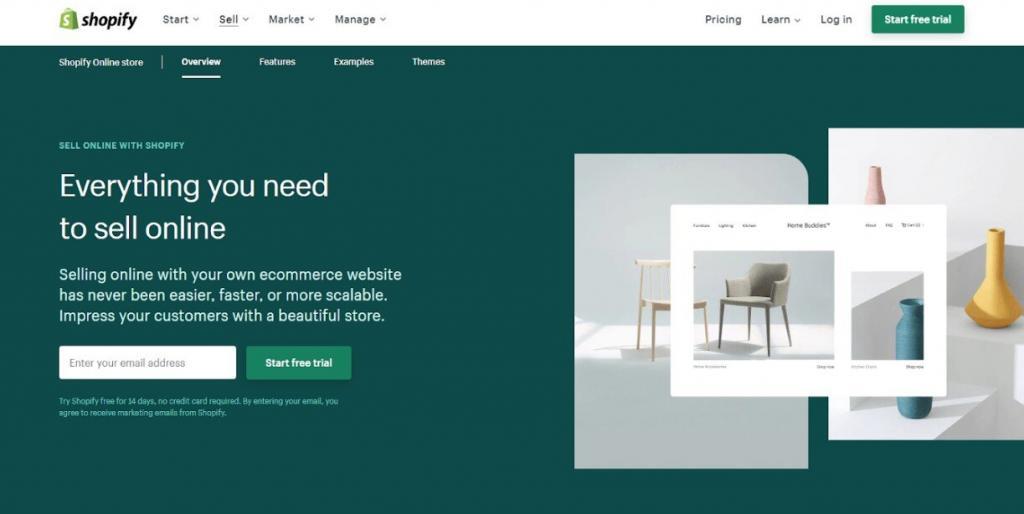Keeping your customers happy is mandatory in today’s dynamic digital commerce industry! Customers expect seamless experiences at every touchpoint, and traditional platforms often fall short of these expectations. This calls for sophisticated technology expertise to create omnichannel experiences.
Headless ecommerce platforms separate the frontend and backend architecture of the ecommerce platform such that the two function independently. They offer an omnichannel experience, enable businesses to stay competitive, support agile marketing systems, and provide smooth UX. Headless ecommerce is also sometimes referred to as the “API-first ecommerce” since it uses APIs to meet the customers where they are. Since the front and backend are disconnected, new front-end channels can be introduced more conveniently & speedily. For a consistent experience, they could all be supported by the same APIs.
The front end can be various channels like the website, social media, mobile apps, and the many other devices that we use on the IoT. The backend comprises all the background systems and processes and tech stacks that support merchandising, integrations, data storage, and checkout – as also the CMS, CRM, and even the digital experience platforms.

Image: Source
Here’s a rundown on some of the most popular headless ecommerce platforms for 2022:
Top headless eCommerce platforms
The priority of any headless ecommerce platform will be managing peak traffic, customization of the user experience, security, and monitoring. The preferred top ten platforms are the following:
Magento
The level of customization on Magento is high, and the platform provides convenient catalog management, optimal search engine optimization, efficient marketing, and a dynamic shopping cart system. An efficient inventory system ensures prompt deliveries and enables multi-point inventory tracking. Management settings can be adjusted per source and per product across the globe. It has a user-friendly visualization of crucial data points in dynamic scatter and bubble charts. A ticket-based system exists for customer support, and all pricing can be made available on request.
Shopify
This headless ecommerce platform allows seamless integration with prominent marketplaces like eBay & Amazon. In addition, it works smoothly with other apps like Google Sheets, Airtable, Slack, and Mailchimp. While Shopify deals with small to medium enterprises, Shopify Plus is equipped to handle large retail businesses. Creative control is accessible on all touchpoints, and CMS can be used to engage the customers through kiosks, vending machines, wearable gadgets, and even billboards. Shopify Plus is supposed to be stable and possesses sound inventory management & analytics. The community forum on ShopifyPlus is active, and chat & email support is quick.

Image: Source
OroCommerce
The platform provides eCommerce solutions for manufacturers, distributors, wholesalers, retailers, and brands. It is a scalable and open-source platform. Primarily made for the B2B industry, it can also be customized to fit any B2B2C or B2C eCommerce if needed. It has an open-source philosophy and is supported by an active community. Whether it is multi-website or multi-warehouse management, it s easy with the inventory management feature. It allows the user to sync the eCommerce and the ERP and integrates with CRM apps such as Salesforce or ERP apps such as SAP. Pricing is available on request.
Spryker
Spryker claims to have ambitions to become “the amazon for the component industry.” It offers B2B, B2C, enterprise marketplace, and unified commerce capabilities. It gives retailers tools to do things innovatively and develop something from scratch as they want. The features offered are almost a semblance of Lego blocks – with individual software components provided in an easy-to-access and use manner. Customized solutions offer speed, agility, and customized solutions.
Snipcart
Snipcart gets its reputation as an excellent headless eCommerce platform because it makes ecommerce integration easy and helps transform any website into a customizable platform for e-commerce. Integration is faster for developers, and many non-technical merchants opt to work with Snipcart. Interestingly, using it is like adding a third-party script like Google Analytics to your website – a simple Javascript snippet gets added to the website and does its work. It is flexible, convenient, and can customize the checkout steps, fields, and styles.
FoxyCart
FoxyCart is a customizable headless e-commerce platform built for web developers and designers. It makes stable online shopping carts that are easy to use. It caters to experienced developers but is also ideal for first-timers because of the simple HTML skills. It is flexible, and users can create unique stores in alignment with their business models. It offers a fast checkout flow and can be added with a link or form.
CommerceTools
Commercetools is one of the recommended headless ecommerce platforms built on modern MACH principles. MACH implies – Microservice-based, API-first, Cloud-native, and Headless, and Commercetools gains its reputation from being a “next-generation” platform. It enables users to work with, instead of around, their commerce solution so that the exact needs of the business and customers are catered to. Retailers can work on their brand awareness by inspiring trade teams to build innovative & engaging experiences. Sale functionality is possible here via cloud deployment. Inventory and multi-store management are easy to track, and Commercetools smoothly integrates with Contentstack, Cybersource, and Frontastic. The 24×7 support is an added advantage. Price available on request.
BigCommerce
This headless ecommerce platform is best for small businesses who want an affordable, comprehensive solution. It has built-in functionalities and data resources and is a public-traded eCommerce platform that gives SaS services for building and hosting online stores. Its multi-currency support and innovative design features make it popular.
Acro Media
It is a headless eCommerce platform using Drupal technology to design, deliver and manage eCommerce products. The agile methodology enables it to build collaborative partnerships, optimize workflows, integrate with 3rd party vendors, and improve customer experience. Pricing is available on customer requirements and ample support through phone, email, and chats.
Contentful
Contentful is known to work as a headless eCommerce platform to reduce time-to-market. Content gets unified into a single hub and can be structured for any digital channel. The strong integration makes it possible to structure the content for multiple platforms and channels. The user interface is intuitive, and support is available for various spaces. Organizations that need individual projects for development, staging, or production significantly benefit from this. Contentful integrates with apps like Dropbox, Jira, Google Analytics, Commercetools, and other similar business tools. Ticketing, documentation, user guides, and community support are available.
How do you decide on a Headless eCommerce platform?
For a seamless experience, you’re going to have to make a choice based on specific features that are considered essential for an excellent headless ecommerce platform:
- Design and content modeling
- Choice of framework
- Management of digital assets
- Scalability
- Digital asset management
- Monitoring tools preferred
- Implementation timeline
- Costs
Besides this, you should know that you can even transition from a single monolithic structure to a headless ecommerce platform. In the modern volatile economies, businesses are increasingly looking at these platforms for a more conducive setup.
Time to rethink and strategize your ecommerce models too!
You may also want to read,
- How to do SEO of a Fashion Ecommerce website?
- The Future of Ecommerce: Top 5 Marketing Predictions for 2022







